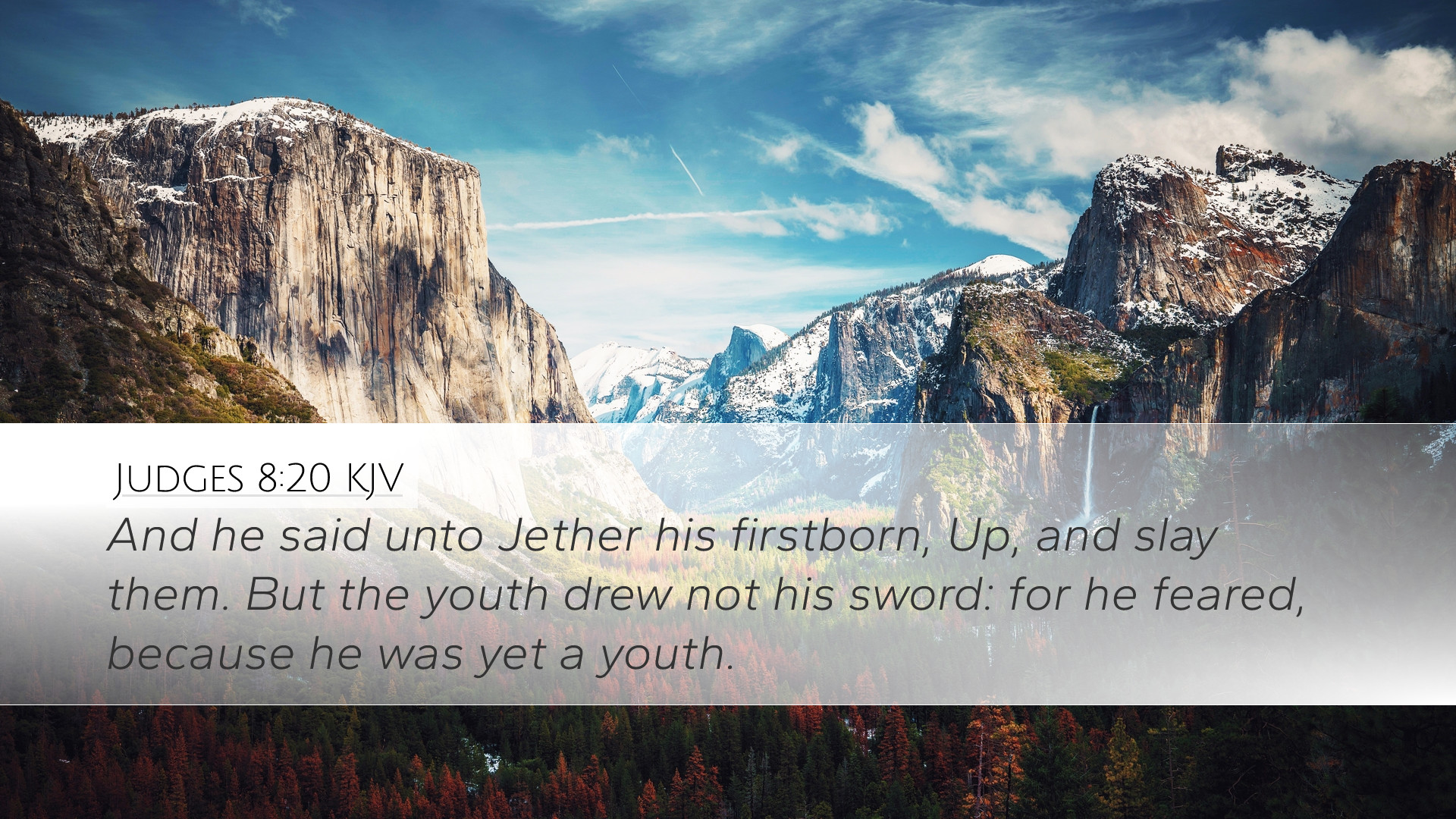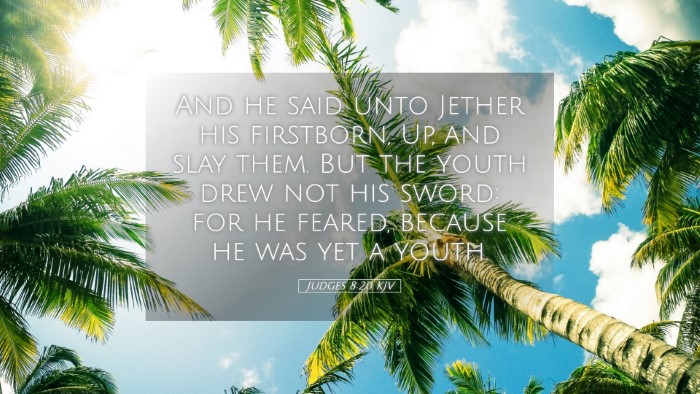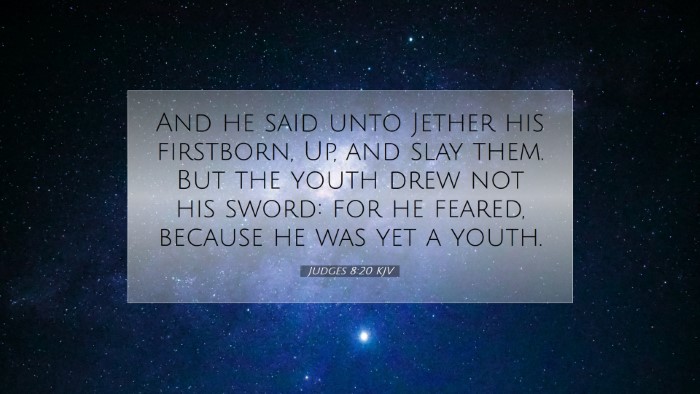Commentary on Judges 8:20
In Judges 8:20, we encounter a pivotal moment in the narrative of Gideon, where he faces the grim task of dealing with the threat posed by his own son. This verse states, "And he said unto Jether his firstborn, Up, and slay them. But Jether feared, because he was yet a lad." This brief yet intense passage holds rich theological and moral implications that resonate through the ages.
The Context of Judges 8
This chapter unfolds after Gideon's successful victory over the Midianites, showcasing God's miraculous aid to Israel. Gideon had reduced the size of his army and introduced a strategy that relied on divine intervention rather than human strength. Judges 8 also explores themes of leadership, faithfulness, and the consequences of personal and communal rebellion against God.
Gideon's Command
The command given by Gideon to his son Jether to slay Zebah and Zalmunna, the Midianite kings, highlights several aspects:
- Authority and Responsibility: Gideon, as the leader of Israel, carries the authority to execute judgment on the enemies of God's people. His instruction is not just a personal vendetta; it is an act of obedience to God's command for Israel to purge its enemies.
- Moral Dilemma: The difficulty of this command indicates the serious moral implications of leadership. Gideon is teaching his son Jether that leadership involves hard decisions, even those that require difficult actions against opponents.
Fear of Jether
Jether's fear "because he was yet a lad" brings forth important insights:
- Youth and Innocence: Jether’s youth underscores the stark contrast between the expectation of violence in leadership and the inherent innocence that often characterizes childhood. His hesitation is a reminder of the innocence we risk sacrificing in the pursuit of justice.
- Human Emotion in Leadership: This moment reveals the emotional weight of leadership not only on the leader but also on those who are called to deliver on their commands. Jether's fear invites readers to consider the complexities of executing divine judgment while maintaining compassion.
Theological Implications
The verse invites deeper theological reflection:
- God’s Sovereignty: The instruction to kill the kings underscores God’s sovereignty over nations and the divine mandate for Israel to remain faithful to His laws. Gideon, despite his flaws, acts as an instrument of God’s judgment, reflecting God's ongoing commitment to justice.
- Grace and Judgment: This text juxtaposes God’s grace towards Israel against the backdrop of judgment against Midian. It serves as a foreshadowing of the ultimate judgment against sin that would be fulfilled in Jesus Christ.
Lessons for Pastors and Theologians
Pastors and church leaders may draw several important lessons from this passage:
- Engaging with Youth: The interaction between Gideon and Jether highlights the importance of mentoring young people within the faith community. Leaders must cultivate courage and wisdom in future generations.
- Balance of Grace and Holiness: Ministers should recognize the necessity of enforcing righteousness while also exhibiting grace. The battle against sin must be fought without compromising the love and compassion of Christ.
- Courage in Leadership: This narrative urges leaders to confront uncomfortable situations with faithfulness to God’s commands and the understanding that such decisions often require great personal sacrifice.
Concluding Thoughts
Judges 8:20 captures a moment that is rich with meaning and challenges. Gideon’s trust in God and the moral bravery expected from leaders are timeless themes that should resonate within the hearts of both contemporary and future leaders in the church. The complexity of these passages urges us to approach leadership and our responsibilities with humility, an acknowledgment of the fear present in decision-making, and a commitment to embody both justice and mercy.


